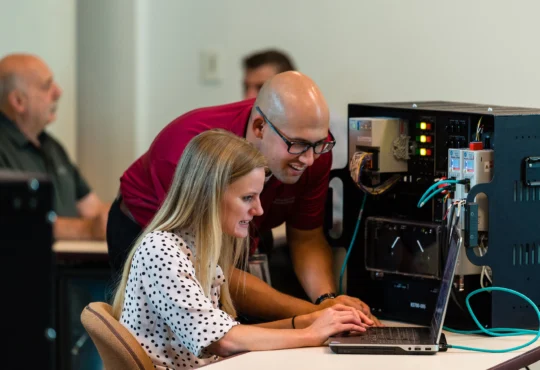
How an Emotional Intimacy Coach Can Transform the Way You Love and Connect
What Is an Emotional Intimacy Coach and Why Their Role Matters
An emotional intimacy coach helps individuals and couples build deeper, more authentic emotional bonds by fostering vulnerability, trust, and meaningful communication. This role is distinct from a general life coach or therapist, as it focuses specifically on the emotional and relational dimensions of connection. These coaches provide guidance on identifying emotional blocks, unpacking defense mechanisms, and creating emotional safety with others. Unlike surface-level relationship advice, emotional intimacy coaching targets the deeper emotional undercurrents that often go unnoticed. The work helps clients tune into their own emotional needs and express them in ways that invite closeness instead of conflict. For many people, this kind of support brings a sense of being seen and heard in ways they’ve never experienced before. Whether working through trauma, building new habits, or simply learning how to trust again, the coach acts as a skilled guide toward emotional clarity and intimacy.
Key Signs You Might Need an Emotional Intimacy Coach
Many people struggle with emotional closeness without even realizing it. You may have difficulty expressing how you feel, especially in moments when emotions are high or situations feel vulnerable. Repeating emotional patterns—like withdrawing during conflict or becoming overly reactive—often points to unresolved intimacy challenges. A common experience is feeling distant or disconnected from a partner even when physically present. Others may feel unseen or misunderstood, even in long-term relationships. When there’s a lack of emotional safety, trust can erode, leading to communication breakdowns or emotional shutdowns. If you find yourself avoiding deep conversations or fearing rejection when being honest, it could be a sign that emotional intimacy coaching would offer valuable support.
What Happens During Emotional Intimacy Coaching Sessions
Sessions with an emotional intimacy coach are designed to feel like a secure and nonjudgmental space. Coaches help you uncover emotional habits and beliefs that shape how you relate to others. Guided dialogues allow you to practice expressing yourself more openly, while learning how to listen in ways that create deeper emotional bonds. These sessions often include mindfulness practices, journaling prompts, and role-play exercises to explore emotional reactions and relationship triggers. A big part of the work involves increasing awareness around how you show up in relationships, particularly during emotionally charged moments. You may be surprised by how much clarity arises just from slowing down and being fully present with your emotions. These coaches maintain firm ethical boundaries while also creating an atmosphere of warmth and trust that invites growth. Clients often report feeling lighter and more connected after even a few sessions.
Skills You Develop Through Working With an Emotional Intimacy Coach
Emotional intimacy coaching teaches skills that strengthen all types of relationships, not just romantic ones. One of the foundational skills is learning to express emotional needs clearly and directly—without guilt, shame, or blame. You also develop the capacity for emotional regulation, which means managing your internal responses during conflict or stress. Another key area is building trust, not just with others but with yourself, by learning how to stay emotionally honest even when it feels uncomfortable. As you build these skills, relationships become safer and more fulfilling. You’ll also discover how to hold space for others’ emotions without absorbing or reacting to them, a skill that’s especially helpful in partnerships and parenting. Boundary-setting becomes more natural, and compassion becomes easier to access even when disagreement arises. The end result is an expanded emotional capacity that influences every area of your life.
Emotional Intimacy Coaching for Couples vs. Individuals
While emotional intimacy coaching can transform individual awareness, it also provides incredible breakthroughs for couples. For couples, the coach acts as a neutral guide to help both partners feel heard and understood. Coaching helps uncover the patterns that lead to emotional distance and replaces them with intentional habits that foster closeness. For individuals, the work is more focused on healing personal emotional wounds and improving relationship readiness. Some people come into coaching after a breakup, seeking clarity and personal growth before entering a new relationship. Others want to learn how to trust again after betrayal or emotional neglect. Whether you’re in a relationship or not, emotional intimacy coaching provides tools to improve how you relate to others and yourself. Couples often find that coaching reignites their emotional connection, while individuals walk away with deeper self-respect and emotional literacy.
How Emotional Intimacy Coaching Differs from Therapy
Although emotional intimacy coaching and therapy may overlap in content, their frameworks and methods are quite different. Coaching is generally action-oriented, focused on present-moment awareness and forward movement. Therapy, on the other hand, may involve diagnosing mental health issues or exploring past trauma in-depth. Emotional intimacy coaches do not offer clinical treatment but instead focus on relationship patterns, emotional habits, and communication dynamics. Coaches help clients set clear emotional goals and offer accountability as they work toward healthier connections. Coaching sessions may feel more like collaborative dialogues than formal assessments. Another distinction is that coaching tends to be more flexible in structure, often incorporating real-time feedback and active practice. If you’re looking to deepen emotional connection and improve your capacity to love and be loved, an emotional intimacy coach might be the better fit compared to traditional therapy.
Benefits of Working With a Certified Emotional Intimacy Coach
A certified emotional intimacy coach brings a high level of skill, training, and ethical standards to their work. Clients benefit from structured guidance that leads to real shifts in emotional behavior and self-awareness. These coaches support you in identifying unconscious beliefs that block intimacy—like fear of abandonment, perfectionism, or people-pleasing. Through this process, you become more emotionally honest and grounded in your relationships. Many clients discover how to express their emotions without fear, resulting in closer and more fulfilling partnerships. Communication becomes smoother, and emotional wounds begin to heal as you feel safe sharing your inner world. Another key benefit is the ability to hold deeper, more meaningful conversations without shutting down or becoming reactive. With the right coach, you’ll find yourself growing not just in love, but in life.
How to Find a Trustworthy Emotional Intimacy Coach
Finding the right coach begins with knowing what to look for. Credentials, certifications, and real-world experience matter, especially when dealing with emotional vulnerability. Reputable coaches often have training in emotional intelligence, trauma-informed communication, or somatic awareness. During a consultation, ask questions about their coaching style, boundaries, and experience with issues like attachment, codependency, or emotional avoidance. A trustworthy emotional intimacy coach will offer clarity without pushing you into anything uncomfortable. It’s also important to check whether the coach offers virtual or in-person sessions, depending on your preferences. Some coaches specialize in helping couples, while others focus solely on individuals. Red flags to avoid include lack of boundaries, vague promises, or an unwillingness to answer your concerns. The right coach will make you feel seen, safe, and supported every step of the way.
Real-Life Relationship Challenges Addressed by Emotional Intimacy Coaching
Many common relationship struggles stem from a lack of emotional intimacy. Coaching can help address emotional disconnection that comes from avoidance, fear, or long-standing resentment. If you’ve ever felt emotionally alone in a relationship, even when you’re physically present with your partner, you’re not alone. Coaching supports couples in rebuilding closeness after major breaches like betrayal or emotional neglect. It also helps individuals who feel emotionally numb or shut down start feeling again—without being overwhelmed. Communication breakdowns often improve drastically once both people feel emotionally safe. Even issues like over-functioning, anxious attachment, or emotional detachment can be addressed through intentional coaching work. Whether you’re trying to repair an existing relationship or heal from past ones, emotional intimacy coaching offers clarity and direction.
Frequently Asked Questions (FAQ)
Q1: Can an emotional intimacy coach help me if I’m single?
Absolutely. Emotional intimacy coaching is often most powerful when done individually. You’ll explore emotional patterns, increase your capacity for vulnerability, and prepare for healthier relationships moving forward.
Q2: How long does emotional intimacy coaching typically last?
It varies depending on your goals and starting point. Some clients work with a coach for a few months, while others may choose ongoing support. Progress often becomes noticeable within the first few sessions.
Q3: Is emotional intimacy coaching only for romantic relationships?
No. It can improve all forms of relationships, including those with family, friends, and colleagues. Emotional intimacy skills are universally applicable.
Q4: Will I need to share painful or private experiences?
Only what you’re comfortable with. A good coach will never pressure you but will gently invite exploration when it feels safe. The pace is always led by you.
Q5: Can coaching help if my partner isn’t interested in joining me?
Yes. Personal transformation often shifts the dynamic in relationships, even when only one person is doing the work. Coaching can help you communicate better, set healthy boundaries, and grow independently.









